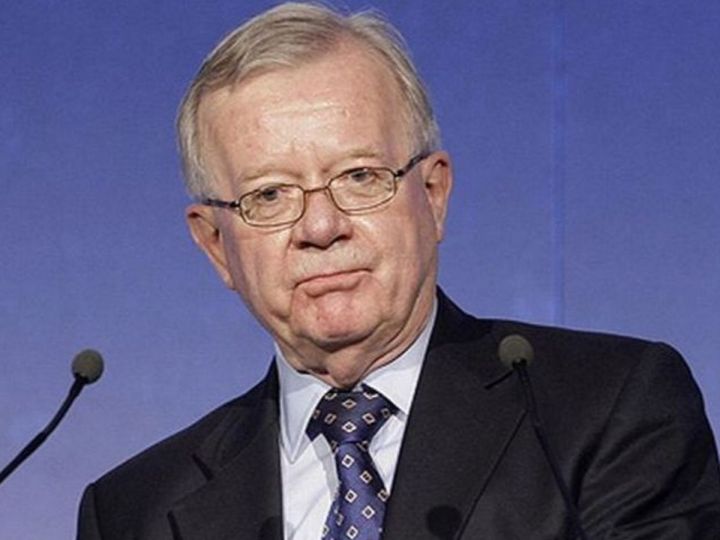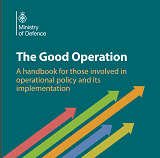
Every so often in a career, you encounter someone who makes a lasting impression, who shapes the way you think and who you feel you would like to emulate. For me, Sir John Chilcot was just such a man.
As the MOD’s Director Chilcot – possibly the only role in Whitehall named after an individual – it was my great privilege to get to know Sir John following the publication of the Iraq Inquiry report in July 2016. He was selfless in his support of our work, giving of his time freely and always ready with a word of encouragement. His death on 3 October takes from our midst a man who cared passionately about sound decision-making, good public policy and the ethos of public service. He leaves a profound legacy which continues to imprint itself on the minds of many of today’s policy-makers.
I recall in particular the help Sir John offered to two conferences the MOD Chilcot Team arranged to promote the learning from the report. He made a keynote address on each occasion, and his star quality brought in a larger and more senior crowd than might otherwise have been the case. His accounts of his own career, and of the good and less good in public policy that he had encountered, were spellbinding, memorable and often wryly funny.
We developed a number of interventions based on the learning from the Iraq Inquiry report, largely in training and development, but also in the form of the short publication, The Good Operation (TGO, which Sir John warmly welcomed).
Based on the Inquiry’s work, we were able to remind public policy-makers of a number of key tenets for the profession: how essential it is to understand any situation before you get involved in it; the need for sufficient foresight about the way in which events could develop, not least to avoid unintended consequences; the importance of effective decision-making structures and processes; the tension between narrative and evidence in policy-making; and perhaps above all, the pitfalls of ‘groupthink’ and the need for diversity of thought. The latter finding led in turn to The Guide to Reasonable Challenge, which you can find at the back of TGO.
How well has what we learned from the Iraq Inquiry bedded down in decision-making at the official level? I’m reasonably confident that the lessons that so often bore Sir John’s name have become pretty well-established across the national security community, and to a certain extent beyond.
And though I’m no longer an integral part of that world, I’m also confident there’s a lasting Chilcot legacy, particularly with regard to groupthink and reasonable challenge. Good decision-making is often about doing things differently than might otherwise have been the case, or even not at all, and judging success against those criteria is difficult. But suffice to say that the ‘Chilcot Checklist’ that was developed across Whitehall following the Iraq Inquiry report’s publication (the Checklist can also be found in TGO) is an essential post-Iraq Inquiry methodology for dividing good policy-making wheat from bad policy-making chaff.
As we look at the recent strategic failure in Afghanistan, it seems to me that the Chilcot report is as relevant as ever. There are other policy failures where the same lessons apply, but now is not the time to reflect on those.
Now is the time to reflect on the loss of a fine man. A person of great substance who achieved great things (including his crucial role in the Northern Ireland peace process), through intelligence, ability, hard work and unshakeable commitment to the public service ethos. He was also one of the nicest people I have ever met – warm, unassuming, gently humorous, and a real gentleman.
Rest in peace, Sir John. You were truly one of our finest, and we honour your memory.


I remember him from my Cabinet Office days when he sat on several of the committees I supported. Undoubtedly a great man, and a man of considerable charm and humour too.
LikeLike